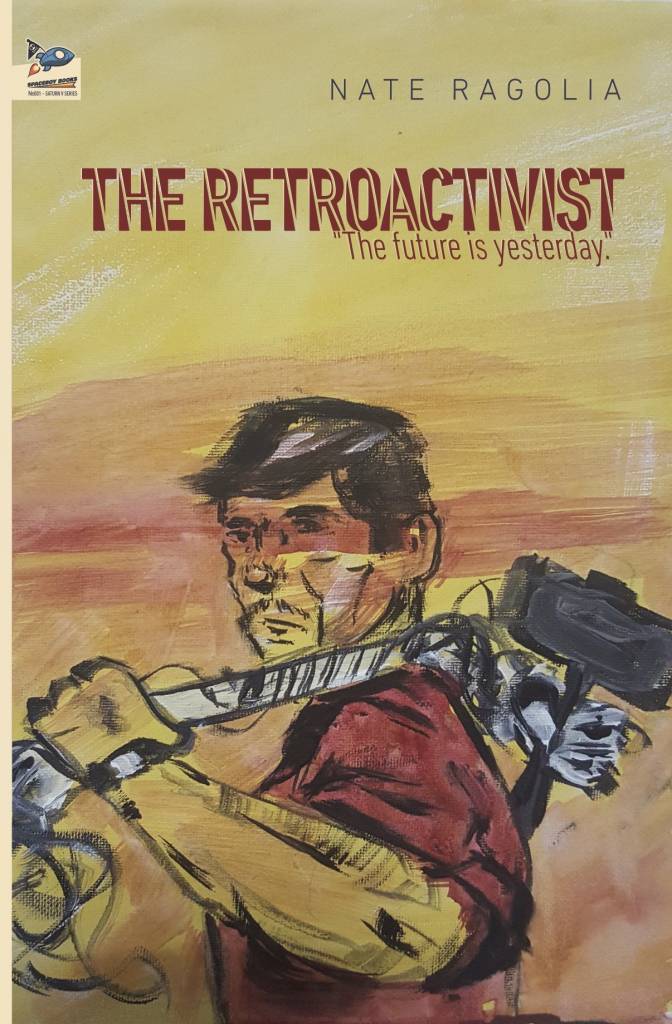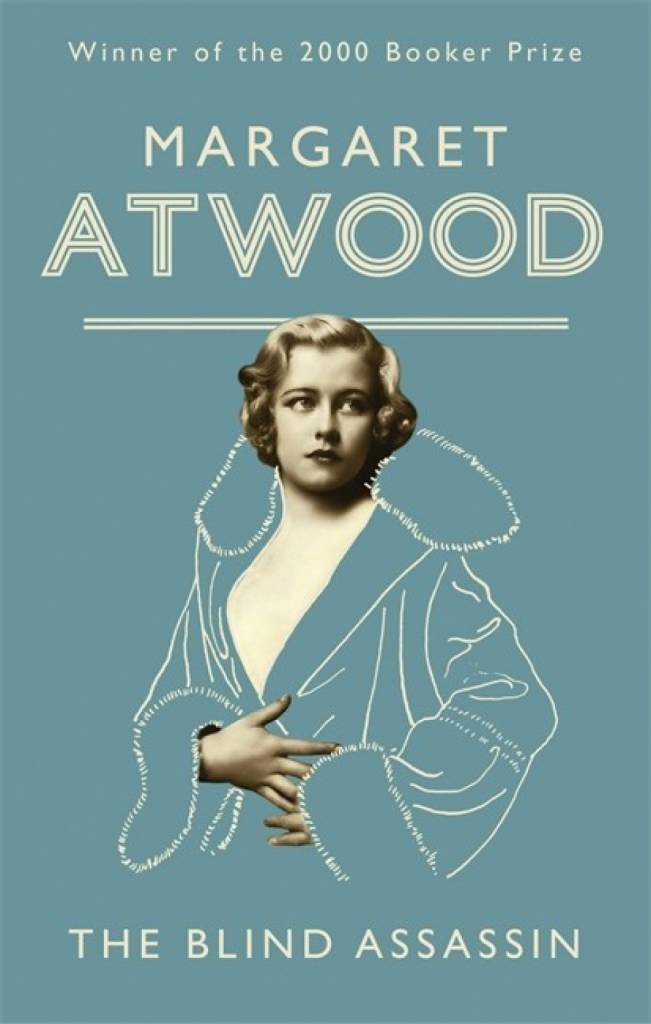Her Royal Feminist Margaret Atwood has been a huge name in women’s literature, and just literature in general, since the seventies.
Possibly her most popular and relevant novel, ‘The Handmaid’s Tale’, depicts an alternative system in which women are kept as childbearing slaves under a repressive patriarchal theocracy, in order to restore the drastically falling birth rates. And although it has been considered a critical piece of writing regarding the dangers of female oppression, the newly released Hulu series based on the novel has brought our attention back to reality.
It’s currently a pretty big talking point, so here are five other books that might interest any budding dystopian readers.
Paolo Bacigalupi – The Windup Girl
 ‘The Windup Girl
‘The Windup Girl’ has been described as part of the ‘biopunk’ subgenre of science fiction, meaning it examines the growing possibilities of synthetic biology – in this case, non-human “New People” have been created to serve the needs of those who can afford it. Emiko, one of these engineered people, is used as a sex slave and humiliated for her synthetic genetics on a daily basis. Set in Thailand in the 23rd century, the novel deals with the strains of long-term global warming and the consequential plagues, GM crops and tensions between states as a result of rising water levels. It’s definitely similar to ‘The Handmaid’s Tale’ because of social and political corruption rather than any feminist elements, but well worth a read for anyone interested in literary prophecies of our future.
Charlotte Perkins Gilman – Herland
 ‘The Handmaid’s Tale’ is one of the most famous feminist novels around, but it was certainly not the first when it was first released in 1986. Charlotte Perkins Gilman, better known for her semi-autobiographical novella ‘The Yellow Wallpaper’, wrote ‘Herland
‘The Handmaid’s Tale’ is one of the most famous feminist novels around, but it was certainly not the first when it was first released in 1986. Charlotte Perkins Gilman, better known for her semi-autobiographical novella ‘The Yellow Wallpaper’, wrote ‘Herland’ as a feminist utopia in 1915, and it was one of the original works of fiction combining feminism and social commentary. It is narrated from the perspective of Van, a male sociology student, who travels with two of his (male) friends to find a secret society consisting of only women and girls. They are discovered, kidnapped, and learn to live amongst the women in Herland, where they eventually emerge with wives, having had to learn their place in a matriarchal society in which no liberties could be taken.
Nate Ragolia – The Retroactivist
 Nate Ragolia’s ‘The Retroactivist’ was only published in February of this year, so it definitely hasn’t had the same opportunity to thrive as other books on this list. Saying that, it has all the ambiguity and plot twists of any classic dystopia – including everything from a fallible male protagonist to a dramatic reveal towards the end of the novel. It follows Reid Rosales as he tries to discover some sense of true meaning in his convenient life, where pretty much every type of labour is now completed by robots and humans are left to act as consumers. He eventually discovers and joins a group whose members have to work for their keep, and relishes in the feeling of building himself into success rather than having no real commitments with which to occupy himself. It’s a great and sometimes difficult tale about human life, and the point where convenience overtakes purpose.
Nate Ragolia’s ‘The Retroactivist’ was only published in February of this year, so it definitely hasn’t had the same opportunity to thrive as other books on this list. Saying that, it has all the ambiguity and plot twists of any classic dystopia – including everything from a fallible male protagonist to a dramatic reveal towards the end of the novel. It follows Reid Rosales as he tries to discover some sense of true meaning in his convenient life, where pretty much every type of labour is now completed by robots and humans are left to act as consumers. He eventually discovers and joins a group whose members have to work for their keep, and relishes in the feeling of building himself into success rather than having no real commitments with which to occupy himself. It’s a great and sometimes difficult tale about human life, and the point where convenience overtakes purpose.
Chimamanda Ngozi Adichie – Americanah
 ‘Americanah
‘Americanah’ may not be dystopian, but it certainly reminds us of some of the (unfortunately) still present ugliness that resonates in western culture in the form of racism. The plot follows Ifemelu, an emerging Nigerian woman, and her struggles to adapt to life in the US, where she has decided to go to attend university as her home country is under a military dictatorship. She builds a life in America thanks to her blog, which documents her commentary on the behaviours of Black Americans in comparison to her own knowledge of Black Non-Americans. The power of ‘Americanah’ lies in its accurate depictions of both societies and its inspiring narration of a young woman fleeing military conflict only to find a less explicit type of conflict in her new home.
Margaret Atwood – The Blind Assassin
 So, we’ve come full circle – back to Atwood and her cynical, dark novels. ‘The Blind Assassin
So, we’ve come full circle – back to Atwood and her cynical, dark novels. ‘The Blind Assassin’, being set and published in 2000, is more contemporary than ‘The Handmaid’s Tale’, but is definitely just as harrowing. The novel is narrated by Iris Chase, who recalls events of her life from childhood to old age, particularly surrounding her husband Richard, sister Laura, and Laura’s lover Alex. Many of the events are kept ambiguous and are gradually revealed as the novel progresses, which makes for a couple of pretty interesting twists that leave you questioning the reliability of the narrator. Although it’s not dystopian in the same way as ‘The Handmaid’s Tale’, ‘The Blind Assassin’ is another brilliant example of tragic female storytelling on Atwood’s part and equally terrifying to think of.
Some of the coverage you find on Cultured Vultures contains affiliate links, which provide us with small commissions based on purchases made from visiting our site. We cover gaming news, movie reviews, wrestling and much more.



